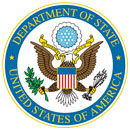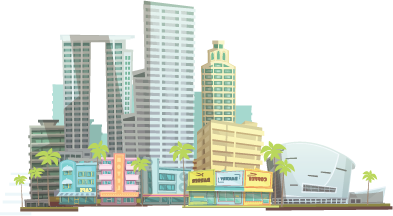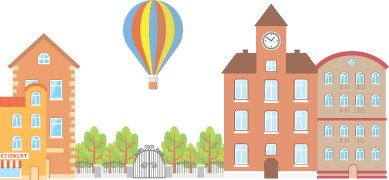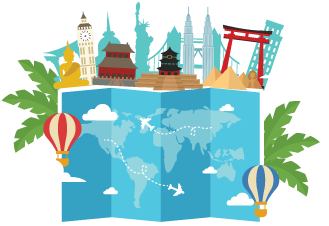-
Capital:
Luxembourg City
-
Currency:
Euro
-
Time zone:
UTC+1 (CET)
-
Driving side:
Right
-
Country calling code:
-
Language(s):
Luxembourgish, French, German
Luxembourg: An Overview
Luxembourg is one of the smallest countries in Europe, yet is it has the largest spot in EU history. The country was a founding member of the Schengen Agreement, then called the Schengen Accord, when it was signed in Schengen, Luxembourg in June of 1985. The agreement was designed to remove border controls to offer freer travel amongst the original signers; Belgium, France, West Germany, The Netherlands, and Luxembourg. Almost half the population of Luxembourg are foreigners drawn to the stately country by its high standard of living, breathtaking scenery, and idyllic location at the intersection of Europe. More than 3 million tourists visit this diminutive nation each year. Fun fact: Petite Luxembourg is among the top three nations, worldwide, in wealth and wine consumption. Prost!
Travel Documents
Your passport must be valid for at least three months beyond your planned date of departure from the Schengen area. You must have at least one blank page for stamps in your passport. If your stay is beyond 90 days, you will need a Travel Visa. If you are a citizen of and ETIAS-eligible country, you will need an approved ETIAS to travel to Luxembourg beginning in 2021. Learn more about the application process and sign up for ETIAS alerts to get the latest news.
Be sure to make photo copies of all your travel documents to take with you on your trip. It also makes sense to leave copies with a family member or friend back home.

Luxembourg : An Overview
22 Boulevard Emmanuel Servais
L-2535 Luxembourg
Phone: +352 46 01 23
Web site: https://lu.usembassy.gov

Emergency Luxembourg Telephone Numbers
| Police: |
113
|
|---|---|
| Ambulance: |
112
|
| Fire and Rescue: |
112
|
| European Union's universal emergency number: |
112 (112 is the equivalent to 911 in the US)
|
Where to Go
-

The City
Luxembourg City is a handsome blend of historic charm and new-world architecture. It is a lively little metropolis with deep, ancient roots. Anchored by a fortress, the city is carved into a hillside that slopes down to the Rivers Alzette and Pétrusse. Visitors flock to the old town, the Grand Ducal Palace, and Notre Dame Cathedral. Down below, literally, is Lower Town (Grund), a waterside district popular for its scenery and its café crawl. Dining is distinctly local with fare called “Luxembourgish food,” a mix of French and German-inspired cuisine. One third of the city proper is cloaked by handsomely landscaped green spaces for strolling, mediating and admiring. At night the city promenade is simply magical; guided tours offer insight into vividly illuminated landmarks throughout the city. Stay in old a comfy family inn, modern business accommodations, or a medieval castle outside the city.
-

Nature and Culture
In the south, "D'Musel" (the Moselle region) is considered one of the loveliest regions in Luxembourg. Dotted by medieval towns and sweeping hillsides that are home to Luxembourg’s first vineyards. There visitors can sip local white wines like tart Auxerrois, cool Pinot Gris and slightly sweet Riesling. Fruit tree plantations are the source for local liqueurs and schnapps. The quaint village of Mondorf-les-Bains is home to assorted events: festivals, orchestra performances, fencing and archery tournaments. Visitors can meander through picturesque villages, sweetly scented orchards, and clean meadows, or take a river cruise along the Moselle. Ardennes (Éislek region) in the north entices visitors with its pretty winding valleys, picturesque highlands and dense fir forests. The cozy mountainous village of Esch-sur-Sûre rests in the horseshoe bend of the River Sûre. Mountain biking, hiking and exploring the ruins, like a medieval circa 927 manor house, are popular. Close by in Bourscheid visitors can tour the synonymous 10th century castle, and in Vianden, hike to the Castle of Viandin. History buffs are drawn to the Battle of the Bulge Museum at Wilz Castle and nature lovers swoon over the insta-fabulous Schiessentümpel Waterfall.
-

Neighboring Countries
Luxembourg is bordered by the larger countries of Belgium, Germany, and France. All four EU countries are members of the Schengen Area and will require an ETIAS visa waiver for entry beginning in January of 2021.
Travels Tips
ELECTRICAL OUTLETS AND ADAPTERS FOR US PRODUCTS
Luxembourg uses C, & F Plugs. You will need an adapter and maybe a transformer to use products made for the US electrical grid. Luxembourg runs on a 230 (220) volts, 50 hertz AC current, while US runs on 120 (110) volts and a frequency of 60 Hz AC current. Many American products are able to run on 230 (220) volts, 50 hertz AC current. You need to check your electrical product to make sure it is labeled "dual voltage" before you plug it in, otherwise you may burn out the components rendering it useless. Learn more about the different European plugs and currents here.
PICKPOCKETS AND THEFT
Nearly all crimes suffered by tourists in Luxembourg are nonviolent and avoidable, however you should be prepared for pickpockets. Europe’s transit systems are notorious for pickpockets.
- Being vigilant is your best friend when you are in high theft areas: train stations, trains, city buses, subways and open air shopping areas.
- Store important documents, money and phones in zippered or buttoned pockets, specialized travel day bags or a money belt.
- You should never leave your bags unattended! Make sure you can see them at all times. Better yet, you should keep in physical contact with your bags in public places.
MOBILE PHONES
First, be sure to check that your phone will work in Luxembourg. The easiest way to find out is to check with your mobile phone service provider. You can also find out if your service provider offers international plans for Luxembourg. We recommend signing up for an international plan if you plan on using your smart phone to connect to the internet or use the travel apps you may have installed on your phone. If you decide not to sign up for an international calling and data plan, costs can add up very quickly!
Free WI-FI can be easy to access, but can be very slow or not available in the countryside. Sign up for a Virtual Private Network (VPN) services to secure your phone, tablet or computer when using public Wi-Fi networks. This prevents hackers from accessing your device when using free Wi-Fi.
EUROPEAN TAXIS, BUSES AND SUBWAYS
- Taxis - A good rule of thumb is use a prominent taxi service, one that has a company logo and a telephone number on the car. Avoid using taxis that just have a taxi light on the top of the car. Make sure the taxi driver is using the correct rate for the time of the day and day of the week. Nighttime and weekends have higher rates. When taking a taxi that has a set fare, for example to a Luxembourg airport, make sure you establish the price before you leave.
- Buses and subways - Most European cities have a great public transportation system. The cost of a transit pass for the entire time of your stay can equal the cost of one or two taxi rides. Check out the ticket options that are offered at subway stations, bus terminals and train stations. Get a transit map or download a transit app to your smart phone. Google maps have transit maps for most Luxembourg cities.
EXCHANGING CURRENCY IN LUXEMBOURG
The most important thing you should understand is how exchange rates work. The Euro usually has a higher exchange rate compared to the US dollar. So if you want to get 100 euros and the exchange rate is $1.10 for one euro, it will cost you 110 dollars to get 100 euros. There are many currency conversion apps you can down load to your smart phone to get up-to-date exchange rates.
Many people like to get Euros through their bank before they leave for their trip. Check out what fees the bank charges for this service. Different banks have different fees. These fees can be expensive, so it pays to shop around.
When in Luxembourg avoid using currency exchange companies or booths. These companies can charge up to 15% to 20% of the amount you are exchanging. Luxembourg banks can also charge high fees to exchange money. You best bet is to use your ATM card with an established bank to get local currency.
DEBIT CARDS AND ATMS
First, make sure that your ATM card can be used internationally. Second, see what your bank charges for international ATM fees. Third, see what is the maximum amount you can withdraw each day. While there are fees associated with using an ATM card, they are usually much less than the fees charged by Luxembourg banks and currency exchange companies. ATM fees are a flat fee not a percentage. So when you are withdrawing money using your ATM card, take out the maximum amount to reduce amount of ATM fees you will incur. Also it is a good idea to use bank ATMs instead of third party ATMs, which can charge higher fees.
CASH VS CREDIT CARDS
Using local cash is key for the European tourist. Some businesses do not accept credit cards and many businesses charge a higher price when using a credit card due to the credit card fee they pay to the credit card company. Many businesses will take US dollars, but then you will need to figure out the exchange rate to ensure you are being charged the correct amount and receiving the correct change. Having smaller bills is better than large bills. Also remember to keep your cash secure in pickpocket proof pockets or a money belt.
US credit cards are widely accepted across Luxembourg. Just in case, check with bank to be sure your credit card will work in Luxembourg. Before you leave on your trip, sign up for a credit card that has no foreign transaction fees. If you don’t, you may be in for a surprise when you get your credit card statement that contains lots of foreign transactions and currency conversion fees.
It makes sense to use a credit card for hotels, car rentals, Eurail pass, upscale businesses and restaurants. Limit the number of credit cards you take with you. Bring one back up credit card in addition to the main card you intend to use. Be sure to contact your credit card company and let them know the dates you will be traveling abroad.
TIPPING IN LUXEMBOURG
Generally speaking, if someone in the service industry provides great service for you, a tip of a couple of euros is acceptable, but not required.
- Restaurants - 5% to 10%, with 10% being for over the top service. Be sure to check to see if service has already been included in the bill
- Taxis - round up to the nearest Euro, for example, if the fare is 5 euro give them 6
Hotel porters - one euro for every bag
Medical Information
Here’s the good news: most of Europe, including Luxembourg, has a universal health care system that takes care of everyone – including foreigners. If you need healthcare due to illness or injury while traveling in Luxembourg, you won’t have to worry about getting treated. There will be out-of-pocket costs, but those are generally reimbursable depending on your health insurance.
IMPORTANT HEALTHCARE HINTS
- Pack enough of any prescription medications for the length of your stay, in their labeled, original containers. It is smart to add a few more pills than you need, just in case you stay longer.
- Bring a small first aid kit with over-the-counter necessities.
- In an emergency call 112, that’s the “911” in Europe.
- If you have a non-emergency health issue, go to the nearest pharmacy first. Luxembourg pharmacists can actually diagnose and prescribe medications for minor issues like sore throats, sinus and stomach issues and minor aches and pains.
- If the pharmacist can’t help you, go to a clinic. They’re much like our stateside urgent care clinics, and providers can order any tests you might need like x-rays.
- Ask for a House Call. Your hotel will most likely be able to have a physician come to your room if need be.
- Most embassies and consulates have lists of physicians and hospitals in major cities. Go on the U.S. Embassy’s site, choose your destination and look under U.S. Citizens Services section.

